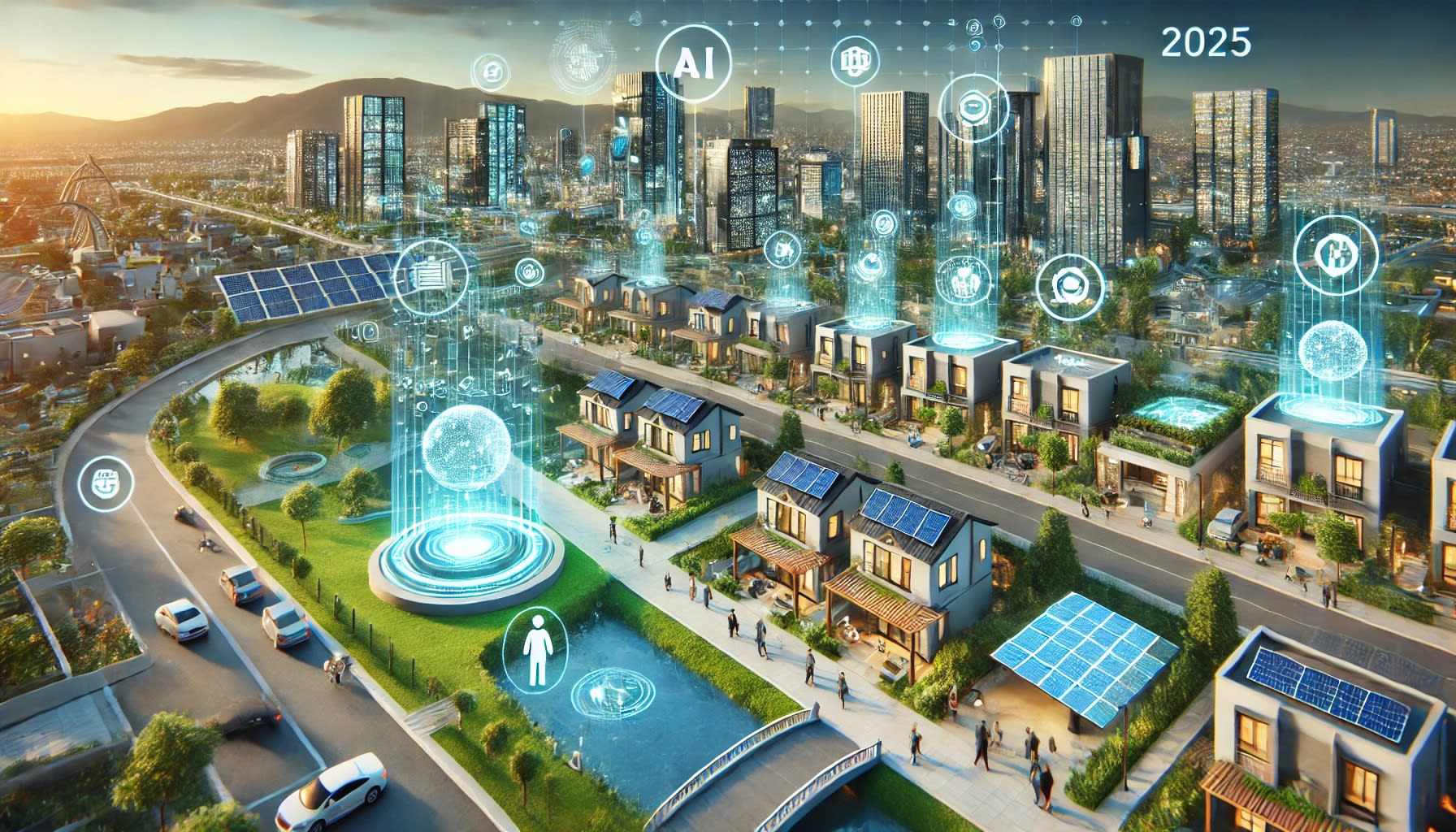The Role of Artificial Intelligence in Modern Real Estate

Introduction
Artificial Intelligence (AI) is no longer a futuristic concept—it’s a present-day game changer, especially in the world of real estate. From property valuations to personalized recommendations, AI is streamlining how people buy, sell, and invest in property. In Pakistan, where the real estate sector has traditionally been manual and trust-based, AI is introducing transparency, efficiency, and speed.
Forward-thinking developments like Falaknaz Greens, One Beverly, and The Mega Mall are beginning to adopt AI-driven solutions to enhance the customer experience, improve management processes, and boost investor confidence. Let’s explore how AI is shaping the real estate landscape and what it means for buyers and developers in 2025 and beyond.
Understanding AI in Real Estate
Artificial Intelligence in real estate refers to machine learning algorithms and data-processing systems that help analyze patterns, automate tasks, and predict trends. AI can be found in:
Chatbots on property websites
Virtual assistants for customer service
Price prediction and market analysis tools
Smart home features and energy management
Predictive maintenance in residential complexes
In a market as dynamic as Karachi’s, AI offers a powerful advantage—providing real-time insights into property value, buyer behavior, and location trends.
How AI is Revolutionizing Real Estate in Pakistan
1. AI-Powered Property Valuation
Gone are the days of relying solely on real estate agents for property pricing. AI tools now scan historical data, local market trends, and area comparisons to generate highly accurate property valuations.
For example, an AI-based tool can assess apartments in Falaknaz Greens or One Beverly by:
Analyzing sales history
Reviewing location-based metrics
Predicting future appreciation
This eliminates guesswork and empowers both buyers and sellers to make informed decisions.
2. Smarter Customer Support with AI Chatbots
Property portals and developer websites are increasingly integrating AI chatbots to:
Answer FAQs
Schedule property visits
Provide documentation assistance
Recommend properties based on user preferences
Visitors to websites for projects like The Mega Mall can get instant answers through AI-powered systems—improving the user experience and boosting conversions.
3. Predictive Analytics for Investors
AI tools can analyze thousands of data points to predict:
Neighborhood development
Upcoming hotspots
ROI potential
Rental income forecasts
For example, an investor considering commercial units at The Mega Mall can use AI tools to compare projected ROI based on:
Expected footfall
Nearby infrastructure plans
Market demand patterns
Such insights allow investors to act proactively rather than reactively.
4. Personalized Property Recommendations
Much like how Netflix or Spotify tailor recommendations, AI in real estate uses user behavior to suggest suitable properties. Based on:
Budget
Location preference
Unit size
Past searches or viewed listings
AI engines can instantly show filtered listings, making the property search journey faster and more personalized.
5. AI in Smart Homes
AI is also transforming how people live in homes. Projects like One Beverly are integrating smart home technologies that:
Learn user routines to optimize lighting and temperature
Detect unusual activity and alert security services
Manage energy consumption in real time
Schedule maintenance or alerts automatically
This leads to lower energy bills, better security, and a high-tech lifestyle—highly attractive to the modern buyer.
6. AI in Facility and Building Management
Residential communities like Falaknaz Greens can use AI to monitor:
Utility usage
Water tank levels
Air quality
Garbage collection cycles
Elevator performance and repair needs
AI systems can schedule maintenance before a fault even occurs, reducing costs and increasing satisfaction among residents.
The Benefits of AI for Buyers and Developers
For Buyers:
Transparent pricing
Faster search and decision-making
Better property match based on lifestyle and income
For Developers:
Streamlined sales processes
Lower customer support burden
Enhanced property management
Data-driven marketing campaigns
Challenges to Adoption in Pakistan
While AI is making its way into the industry, Pakistan still faces some hurdles:
Lack of awareness among traditional agents
Incomplete digitization of property records
High costs of implementing smart infrastructure
Skepticism around data privacy and AI accuracy
However, as more buyers demand faster, smarter experiences, developers are increasingly investing in AI to stay competitive.
Looking Ahead: AI and the Future of Real Estate
The impact of AI on real estate is just beginning. In the near future, we can expect:
Fully AI-managed apartment buildings
Real-time AR tours powered by user data
Blockchain-AI integrations for seamless transactions
Voice-activated property search portals
Karachi, being the economic engine of Pakistan, is well-positioned to lead this shift—especially with tech-forward projects like One Beverly, Falaknaz Greens, and The Mega Mall at the forefront.
Final Thoughts
Artificial Intelligence is more than just a buzzword—it’s a real force transforming how real estate functions in Pakistan. From property valuation and recommendations to building management and customer service, AI is simplifying and optimizing every part of the journey.
For anyone looking to invest, buy, or develop property in 2025, aligning with AI-powered real estate isn’t just an option—it’s the future of smart investing. And with the rise of intelligent projects like One Beverly and The Mega Mall, the future is already here.


